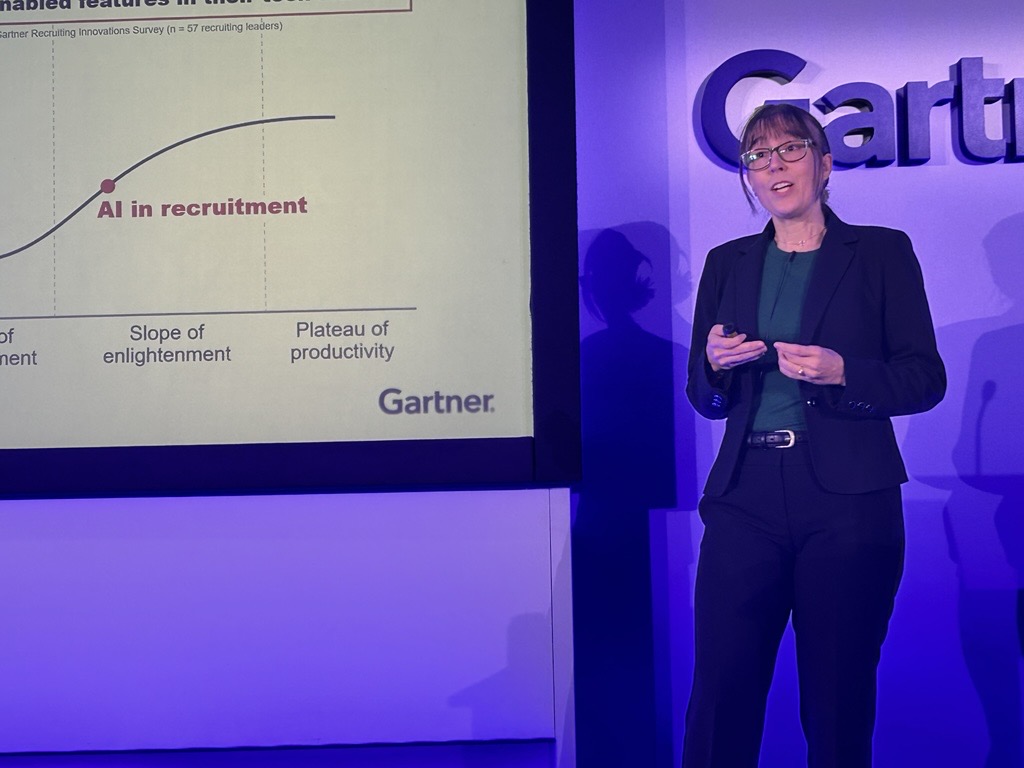LONDON, U.K., October 7, 2025
- Gartner client? Log in for personalized search results.
Gartner Says AI Revolution and Cost Pressures Are Two Forces Driving the Top Four Trends for Talent Acquisition in 2026
Key Recruiting Trends that HR Leaders Must Address Are Being Discussed at Gartner HR Symposium/Xpo in London, October 7-9
Talent acquisition strategies in 2026 are being driven by AI, which is changing nearly every aspect of how business is done, and the need to drive cost out of the business, according to Gartner, Inc., a business and technology insights company.
This research was showcased today during Gartner HR Symposium/Xpo, taking place here through Thursday.
Gartner has identified four trends that will shape talent acquisition in 2026 (see Figure 1):
- High-volume recruiting goes AI-first
- Recruiter skills shift for more complex work
- Talent acquisition redesigns early career programs to pipeline future jobs
- AI reshapes how organizations assess talent
Figure 1:
![[Image Alt Text for SEO]](https://emt.gartnerweb.com/ngw/globalassets/en/newsroom/images/graphs/fig-1-ta-trends.png)
“Many AI use cases in recruiting have been around for a long time, and we’re starting to see real value,” said Jamie Kohn, Senior Director, Research, in the Gartner HR practice. “Now new AI technologies are emerging with the potential to fundamentally reshape recruiting, like generative AI, interview intelligence tools, and recruiter AI agents.”
Organizations should consider the following aspects of talent acquisition in 2026:
Injecting AI into high-volume recruiting
High-volume, low-complexity roles – frontline roles such as retail workers, customer service reps, drivers – are ideal for an AI-first approach. They have the highest potential for cost savings, the stable, repetitive work is a good fit for AI capabilities, and there’s less risk of backlash from candidates or the business as these roles already have a low service level.
Before leveraging AI for high-volume roles, talent acquisition leaders should consider the following:
- Hands-on monitoring is a must. As agentic AI evolves, recruiting leaders should define the reasonable range of outcomes ahead of time and watch closely for deviations.
- There is such a thing as too much efficiency. Inserting a realistic job preview into the process can guard against a flood of low-quality applicants by helping candidates think through whether they actually want the job before they apply.
- Reframe the risk of bias. Talent acquisition leaders should refocus stakeholders on how an AI-augmented process is less biased than the current human-only system.
- Candidates expect transparency and, if possible, choice. Recruiting leaders should clarify how they use AI in the hiring process and allow candidates to opt out of AI interviews. This can build trust with candidates about being treated fairly in the hiring process.

Jamie Kohn, Senior Director, Research, in the Gartner HR practice speaking at Gartner HR Symposium/Xpo in London.
Shifting recruiters to more complex work
“AI has the potential to impact nearly every part of the recruiter role, if it isn’t already,” said Kohn. “Redesigning the recruiter role isn’t just about understanding what technology can do; it’s about understanding how recruiting itself is changing.”
As AI and automation take on more of the low-complexity work, recruiters’ ability to deliver on high-complexity hiring becomes more critical. Recruiters today must advise on talent strategy and role design to meet hard-to-find, in-demand skill needs while also possessing the skills to build long-term relationships with hard-to-access prospects. Finally, recruiters must be able to assess candidates’ fit for the organization’s future needs, not just the current role.
Redesigning early career programs with AI
By 2030, half of enterprises will face irreversible skill shortages in critical job roles due to GenAI accuracy decline, skills erosion and uncompetitive pay.
Organizations need to rethink their whole early-career talent strategy; talent acquisition, specifically, needs to help their organization rescope what early career roles are needed and why. Ultimately, recruiting leaders must work with business leaders to refocus early-career programs around safeguarding future talent pipelines. New graduate hires must provide value today, but they should also have potential to fill critical talent gaps in the future.
Reshaping talent assessment for generative AI
Candidate quality is being threatened by the rise of candidate fraud, candidates’ increasing use of generative AI in the hiring process and rapidly changing skills.
“Maintaining candidate quality requires organizations to assess candidates’ true abilities without GenAI while also integrating AI into assessments for roles that have to use it on the job,” said Kohn.
Gartner predicts that by 2027, 75% of hiring processes will include certifications and tests for workplace AI proficiency. GenAI-based assessments can allow organizations to evaluate both critical generative AI skills and core skills, including critical thinking ability, subject matter expertise, creativity and communication. This gives recruiters and hiring managers a better sense of candidates’ true ability to do the work.
About Gartner HR Symposium/Xpo
Gartner HR Symposium/Xpo is where CHROs and their leadership teams gather each year to reimagine their strategies through the lens of Gartner’s research-driven insights and expert advice on leadership and learning, employee experience, culture and change, talent acquisition and workforce planning, and HR technology. Gartner HR Symposium/Xpo is being held October 7-9 in London, October 27-29 in Florida, and November 17-18 in Sydney. Follow news and updates from these events on LinkedIn using #GartnerHR.
About Gartner for HR Leaders
The Gartner HR practice brings together the best business and technology insights across Gartner to offer individual decision makers strategic business advice on the mission-critical priorities that cut across the HR function. Additional information is available at http://www.gartner.com/en/human-resources/human-resources-leaders. Follow news and updates from the Gartner HR practice on X and LinkedIn using #GartnerHR.
Media contact
Mary Baker
Gartner
mary.baker@gartner.com
Gerri Weinberger
Gartner
gerri.weinberger@gartner.com
Latest releases
About Gartner
Gartner (NYSE: IT) delivers actionable, objective business and technology insights that drive smarter decisions and stronger performance on an organization’s mission-critical priorities. To learn more, visit gartner.com.